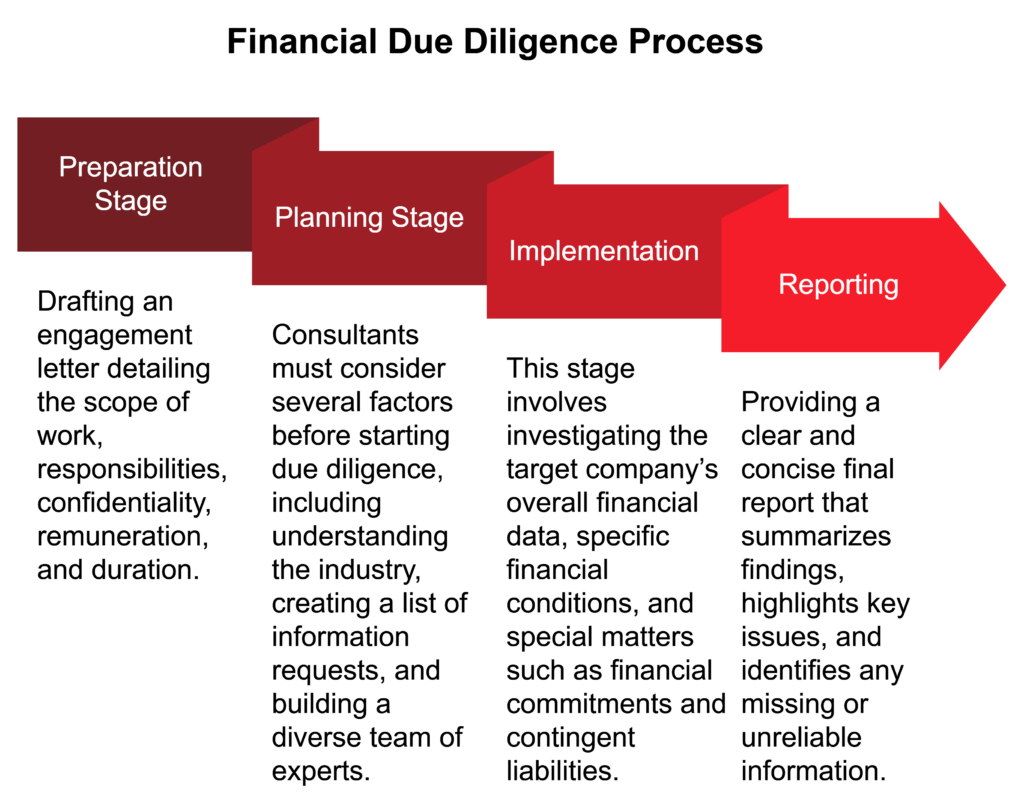
Written by Reyhan Adam Himawan on 16/07/2024
The author’s views are entirely their own and may not always reflect the views of Putranto Alliance.
Below is an AI generated discussion of the topic summary. For any clarity or accuracy please contact us here.
Financial Due Diligence is a critical component of mergers and acquisitions (M&A), allowing the acquiring party to investigate the operational and financial situation of the target entity. This process is essential for ensuring that the acquisition aligns with the buyer’s strategic goals and financial expectations. This article aims to provide a comprehensive understanding of this due diligence, including its definition, importance, optimal timing, benefits, and process.
Financial Due Diligence is a thorough evaluation of an entity’s financial health, typically conducted when a buyer intends to acquire another entity. This process is not limited to acquisitions or mergers but can also apply to joint ventures, financing, or other transactions. The primary functions include revealing financial risks, analyzing past profitability and cash flow, and forecasting future operational prospects.
Key activities involved in financial due diligence are:
The buyer of a target entity often lacks complete information regarding the financial condition of the target. Due diligence allows prospective buyers to confirm assumptions about the target entity’s financial state and ensure alignment with their acquisition strategy.
The objectives of due diligence are:
Buy-side financial due diligence involves a comprehensive analysis of the target entity that the buyer intends to acquire. This process ensures that the buyer gains a thorough understanding of the target entity’s current status and inherent risks.
The methods used in conducting this process include:
Sell-side financial due diligence is initiated by the seller to optimally prepare for possible transactions. This process allows the seller to gain detailed insights into the condition of the entity being sold.
Key considerations in this process include:

The optimal time to conduct financial due diligence is during the initial stages of the M&A process, before finalizing any agreements. This timing allows the buyer to make informed decisions and negotiate terms based on a comprehensive understanding of the target entity’s financial health.
Early due diligence can also help identify any red flags or deal breakers that could impact the transaction.
Properly conducted financial due diligence offers several benefits for both buyers and sellers:
To engage with our FDD services, please provision the following documents:
The Financial Due Diligence process can vary depending on the complexity of the target entity’s financial situation and data availability. Generally, it entails:
Financial due diligence requires a clear strategy and well-defined goals. The process involves several stages:

Financial Due Diligence is a crucial part of the M&A process, involving a detailed investigation of the target entity’s financial circumstances. Putranto Alliance can assist in conducting both sell-side and buy-side financial due diligence. With expertise and experience, we provide thorough and comprehensive financial due diligence reports, ensuring that clients have the necessary information for their next M&A step.
Our Services Include:
Share to your network
A response to the inquiry will be sent to the provided email within 2 working days.
putranto@putranto-alliance.com
Jl. Denpasar Raya Blok C4/24
Kompleks Menteri, Kuningan
Jakarta Selatan, 12950, Indonesia
Click the icons for our social media

SHARE
We use cookies to ensure you get the best experience on our website.